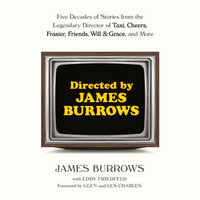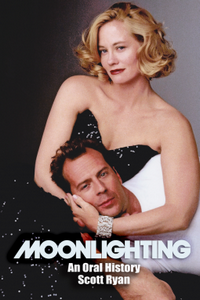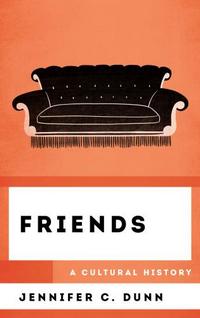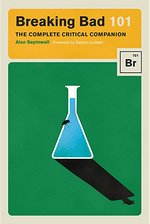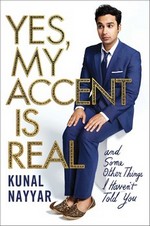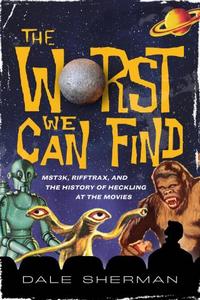 The Worst We Can Find:
The Worst We Can Find:
MST3K, RiffTrax, and the History of Heckling at the Movies
by Dale Sherman
DETAILS: Publisher: Applause Books Publication Date: June 15, 2023 Format: Paperback Length: 246 pg. Read Date: June 27-29, 2023

What’s The Worst We Can Find About?
This is one of those books where the sub-title tells you everything you need to know: “MST3K, RiffTrax, and the History of Heckling at the Movies.” The back of the book does give a fuller explanation:
Had you tuned in to the small television station KTMA on Thanksgiving Day, 1988, you would have been one of the few witnesses to pop culture history being made. On that day, viewers in and around St. Paul, Minnesota, were treated to a genuine oddity, in which a man and his robots, trapped within a defiantly DIY sci-fi set, cracked jokes while watching the terrible 1981 movie Invaders from the Deep. Although its origins may have been inauspicious, Mystery Science Theater 3000 captured the spirit of what had been a beloved pastime for generations of wags, wiseacres, and smart alecks, and would soon go on to inspire countless more.
The Worst We Can Find is a comprehensive history of and guide to MST3K and its various offshoots—including Rifftrax, Cinematic Titanic, and The Mads Are Back—whose lean crew of writers, performers, and puppeteers have now been making fun of movies for over thirty years. It investigates how “riffing” of films evolved, recounts the history of these programs, and considers how a practice guaranteed to annoy real-life fellow moviegoers grew into such a beloved, long-lasting franchise. As author Dale Sherman explains, creative heckling has been around forever—but MST3K and its progeny managed to redirect that art into a style that was both affectionate and cutting, winning the devotion of countless fans and aspiring riffers.
Sherman starts with some commentary on the history of what we now call “meta” and riffing in general—going back to Greek choruses. He then shows how movies started riffing/commenting on themselves (and each other).
He then focuses on MST3K itself—talking about Joel Hodgson’s background and the creation of the show. We actually get some good background on all the major players from the early years. He then describes the transitions in staff/cast as it moves from KTMA to Comedy Central to the movie (and, wow, what an effort to get that made) to SciFi and so on.
We then get a look at what the post-MST3K careers of the central figures look like and how riffing on movies has kept popping up in their lives (largely because people won’t let them stop) and how the show has come back from its ending a time or two.
My Sole Criticism
Sherman only cites previously available material—yes, he dug up a lot of things that many/most fans would never see, never think of looking for. But he doesn’t interview anyone himself, or provide anything outside a couple of personal memories that an industrious fan couldn’t have found on their own.
I don’t want to criticize what he did—it is no small feat to do what he did. And I’m so glad he did it—but the lack of original material keeps me from absolutely raving about this book.
So, what did I think about The Worst We Can Find?
Back when I talked about Scott Ryan’s Moonlighting: An Oral History, I’d said:
When I read a book about a television show, I want a few things—I want something to
- make me want to rewatch the show
- make me not really need to, because the book has helped me remember it in such a way that it’s not that necessary
- give me a lot of behind-the-scenes information about the show
- help me understand it better (not just information, but reflections on it—its legacy, cultural context, impact on television, et.)
- Ideally, teach me something about the art and/or business of television (preferably both)
- and if it can be fun (TV should be entertaining), that’s all the better.
Yeah, that seems like a lot to ask for from a book, but if I’m going to take the time to read a book instead of watching a behind-the-scenes show or listening to a panel discussion, I want bang for my buck—I don’t always get it (and know that going in), but I want it.
The Worst We Can Find delivered on all but the “make me not really need to” because there’s no way that someone could do that in a book form. I have watched some MST3K since then (more than I usually do because I’ve been inspired)—and some Rifftrax, too.
I don’t want ponderous, I don’t want slow. I don’t mind a lot of detail (in fact, I relish it), I don’t mind thoughtful (that’s why I read the book), but I want to be entertained. And Sherman delivered there. His chapter introductions were golden—worth at least half of the purchase price alone. I started to give a couple of examples, but why ruin it for you? So, I’ll be vague. I laughed aloud at Chapter 4’s introduction. Maybe all of them, but Chapter 4 was the point I stopped to make note of it.
I really appreciated the way Sherman pivoted in the last chapter to speak of “we” in reference to fans of the show, it’s clear throughout that he was one of us (there’s no way you do this work without that—or a bigger paycheck than he likely got for this book), but I appreciated the way he did it there.
The last paragraph was perfect, incidentally.
This was a great read, I learned a lot, I chuckled frequently, and I had a great time reminiscing about a favorite show. I think you will, too. I’d say is a must for MSTies. As I said, I can’t rave about it—but I can strongly encourage you to check it out. And keep circulating the tapes.

This post contains an affiliate link. If you purchase from it, I will get a small commission at no additional cost to you. As always, the opinions expressed are my own.
![]()



